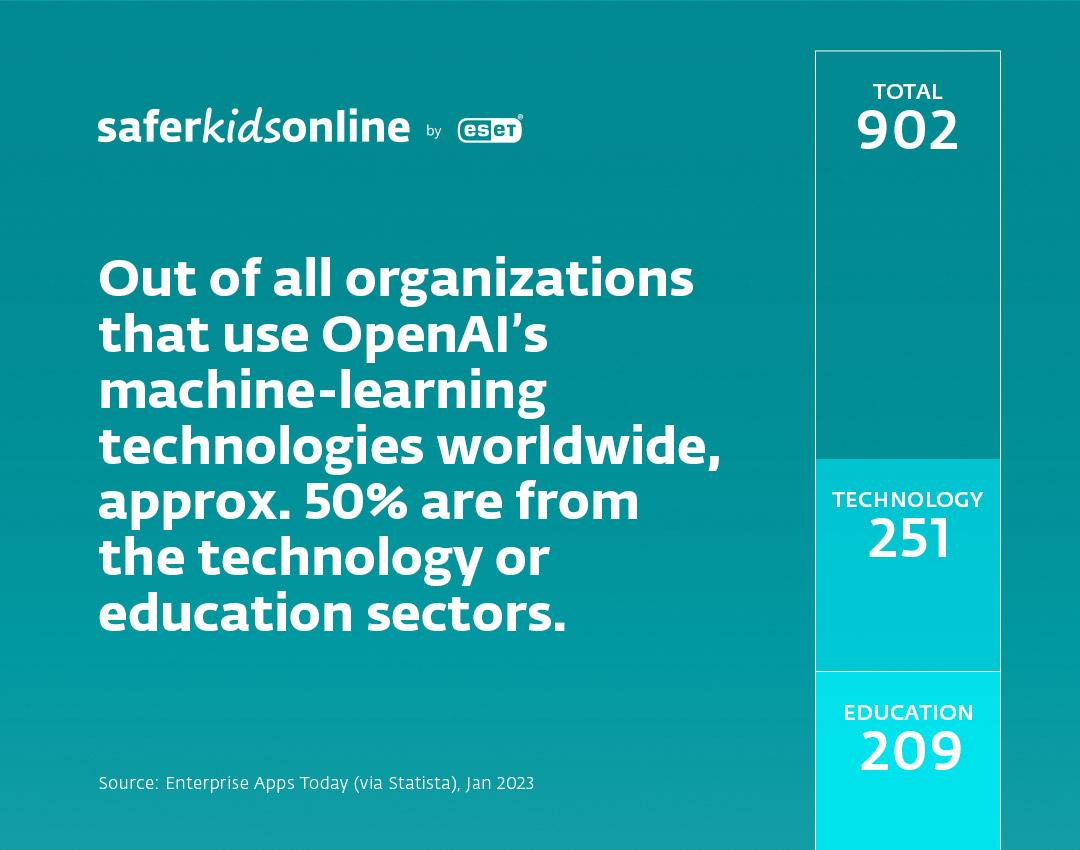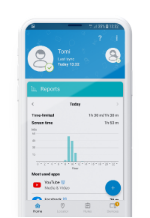From language understanding to chatbots and virtual assistants, artificial intelligence and machine learning have the potential to revolutionize how children interact. Simply put, chatbots such as ChatGPT generate texts based on a lot of information on which they have been trained. But how do they actually work? ChatGPT is an advanced machine learning language model with the ability to create text that is comparable to human responses. It could affect the way kids learn, work with information, and interact with technology.
“Kids now have access to a tool that can help generate answers for their school assignments. They can creatively develop them while saving time they would otherwise spend searching for basic facts,” says ESET’s security awareness specialist Ondrej Kubovic. In this article, we'll explore the benefits and risks of ChatGPT for young children, and how the technology could affect education.

Benefits of ChatGPT for kids
ChatGPT has many potential benefits for children. For example, the technology could be used to improve writing skills. Students can ask ChatGPT to generate a creative writing exercise or practice by having the model generate feedback on their writing. “Kids can use ChatGPT to conduct research on a given topic. For example, in just a few seconds, they can have gathered up material related to their case study,” says Kubovic, but adds: “However, ChatGPT’s source data currently end in 2021, and it will take a while until the truly latest research will be included, so that needs to be considered.”
“AI or machine learning should never be a tool that creates schoolwork completely for the student. Human insight and creativity should always be invested in the outcome.”
- Ondrej Kubovic. ESET’s security awareness specialist
Yes, ChatGPT can write jokes, song lyrics or fantasy stories. And maybe one day it could even be used to provide personalized learning experiences for students. By analyzing a student's language use, ChatGPT could generate recommendations for learning materials that are tailored to the student's needs. “There will be a change in the approach to working with information. Children will have to learn to evaluate information and distinguish which of the materials to use,” says Ondrej Kubovic.
The security awareness specialist thinks that ML-powered chatbots can improve the accessibility of education and counseling in the future. ChatGPT can assist young people as a digital counselor and offer useful advice. For students with visual or hearing disabilities, language models could generate better and easier to understand text-to-speech or speech-to-text translations, making it easier for them to learn and communicate. There are already browser extensions such as Talk-to-ChatGPT.
Risks of ChatGPT for kids
Despite the advantages of ChatGPT, there are some risks associated with its use. Such as that the platform could be used to generate fake news or propaganda. “Models based on machine learning are helpful, but they also produce a large number of mistakes, and nonsense that looks believable. In the current phase, they occasionally mix up data and present them as facts. This can create misinformation and half-truths that people take for facts and spread further,” warns Kubovic.
Young children might be particularly susceptible to such content, as they may not have reached the level of critical thinking necessary to evaluate the accuracy of the information. Or they can simply be tempted to use the results offered by ChatGPT to have their homework done as soon as possible. As a parent, you should get involved, for example, by playing with these tools and learning their limits together with your children. Also, teach your children how to recognize disinformation and hoaxes.
As with any advanced new technology, don’t underestimate the risk that personal data could be collected or stored without the user's consent, especially from the given prompts. In the case of ChatGPT, there is also a risk that the model could be possibly manipulated into creating harmful content or redirecting to something malicious. OpenAI is aware of these limitations (they even list them on their website) and claim that they have taken steps towards blocking problematic content.
Impact of ChatGPT on education
The potential impact of ChatGPT on education is significant. The technology could transform the way students learn and engage with educational materials. Some teachers are already reconsidering how to assign tasks to their students. “New standards and approaches are being introduced. Homework where students write a text on a specific topic by only naming the facts will slowly become meaningless, as a well-written paper can be easily generated by ChatGPT or similar chatbots in many languages,” explains Ondrej Kubovic. So, instead of gathering factual information about a topic and writing it into a Wikipedia-like text, the emphasis will likely be more on the student’s own perspectives and context.
Online tools can considerably change the style of homework and assignments too. For example, the focus can shift to hand-written assignments, created directly in class. Teachers can also resort to assigning more group projects and teamwork, to see different inputs from their students. It might even impact the grading system, as teachers will need to put more emphasis on student’s creative contribution, rather than just factual accuracy. Currently, teachers who know their students can recognize a radical change in their written expression. But in the future, children will have AI tools available to them right from the start. This fact should be embraced by teachers and offer them a new tool for teaching. “ChatGPT will have increasingly better outputs and better access to sourcing information. But, in the end, it’s always up to the user to fact-check and verify that the results are correct and that there has been no misinterpretation,” concludes ESET’s digital security expert Ondrej Kubovic.



